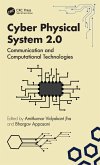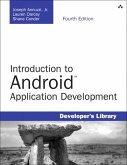Learn the State of the Art in Embedded Systems and Embrace the Internet of Things
The next generation of mission-critical and embedded systems will be "cyber physical": They will demand the precisely synchronized and seamless integration of complex sets of computational algorithms and physical components. Cyber-Physical Systems is the definitive guide to building cyber-physical systems (CPS) for a wide spectrum of engineering and computing applications.
Three pioneering experts have brought together the field's most significant work in one volume that will be indispensable for all practitioners, researchers, and advanced students. This guide addresses CPS from multiple perspectives, drawing on extensive contributions from leading researchers.
The authors and contributors review key CPS challenges and innovations in multiple application domains. Next, they describe the technical foundations underlying modern CPS solutions-both what we know and what we still need to learn. Throughout, the authors offer guiding principles for every facet of CPS development, from design and analysis to planning future innovations.
Comprehensive coverage includes
Register your product at informit.com/register for convenient access to downloads, updates, and corrections as they become available.
The next generation of mission-critical and embedded systems will be "cyber physical": They will demand the precisely synchronized and seamless integration of complex sets of computational algorithms and physical components. Cyber-Physical Systems is the definitive guide to building cyber-physical systems (CPS) for a wide spectrum of engineering and computing applications.
Three pioneering experts have brought together the field's most significant work in one volume that will be indispensable for all practitioners, researchers, and advanced students. This guide addresses CPS from multiple perspectives, drawing on extensive contributions from leading researchers.
The authors and contributors review key CPS challenges and innovations in multiple application domains. Next, they describe the technical foundations underlying modern CPS solutions-both what we know and what we still need to learn. Throughout, the authors offer guiding principles for every facet of CPS development, from design and analysis to planning future innovations.
Comprehensive coverage includes
- Understanding CPS drivers, challenges, foundations, and emerging directions
- Building life-critical, context-aware, networked systems of medical devices
- Creating energy grid systems that reduce costs and fully integrate renewable energy sources
- Modeling complex interactions across cyber and physical domains
- Synthesizing algorithms to enforce CPS control
- Addressing space, time, energy, and reliability issues in CPS sensor networks
- Applying advanced approaches to real-time scheduling
- Securing CPS: preventing "man-in-the-middle" and other attacks
- Ensuring logical correctness and simplifying verification
- Enforcing synchronized communication between distributed agents
- Using model-integration languages to define formal semantics for CPS models
Register your product at informit.com/register for convenient access to downloads, updates, and corrections as they become available.
Dieser Download kann aus rechtlichen Gründen nur mit Rechnungsadresse in A, B, BG, CY, CZ, D, DK, EW, E, FIN, F, GR, HR, H, IRL, I, LT, L, LR, M, NL, PL, P, R, S, SLO, SK ausgeliefert werden.









